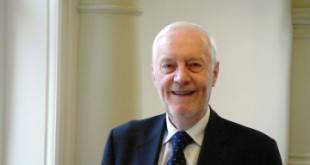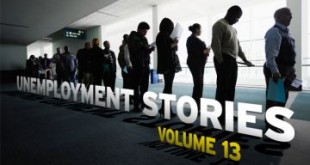To a mainstream economist, theory means model, and model means ideas expressed in mathematical form. In learning how to “think like an economist,” students learn certain critical concepts and models, ideas which typically are taught initially through simple mathematical analyses. These models, students learn, are theory. In more advanced courses, economic theories are presented in more mathematically elaborate models. Mainstream economists believe proper models – good models – take a...
Read More »Sherlock Holmes på besök i högskolevärlden
Sherlock Holmes på besök i högskolevärlden På en av landets största högskolor kunde man igår på dess hemsida läsa att “Bra studiemiljö positivt för studieresultatet.” Woah! Vem hade kunnat ana det …
Read More »Simpson’s paradox and perspectival realism
Simpson’s paradox and perspectival realism Which causal relationships we see depend on which model we use and its conceptual/causal articulation; which model is bestdepends on our purposes and pragmatic interests. Take the case of Simpson’s paradox, which can be described as the situation in which conditional probabilities (often related to causal relations) are opposite for subpopulations than for the whole population. Let academic salaries be higher for economists than for sociologists,...
Read More »What is a good model?
What is a good model? Whereas increasing the difference between a model and its target system may have the advantage that the model becomes easier to study, studying a model is ultimately aimed at learning something about the target system. Therefore, additional approximations come with the cost of making the correspondence between model and target system less straight- forward. Ultimately, this makes the interpretation of results on the model in terms of the target system more...
Read More »Sir David Hendry on the inadequacies of DSGE models
Sir David Hendry on the inadequacies of DSGE models In most aspects of their lives humans must plan forwards. They take decisions today that affect their future in complex interactions with the decisions of others. When taking such decisions, the available information is only ever a subset of the universe of past and present information, as no individual or group of individuals can be aware of all the relevant information. Hence, views or expectations about the future, relevant for their...
Read More »And the waltz goes on
And the waltz goes on [embedded content] (h/t Jeanette Meyer) Absolutely fabulous!!
Read More »I d’pluck a fair rose for my love (private)
I d’pluck a fair rose for my love (private) [embedded content]
Read More »Model selection and the reference class problem (wonkish)
Model selection and the reference class problem (wonkish) The reference class problem arises when we want to assign a probability to a single proposition, X, which may be classified in various ways, yet its probability can change depending on how it is classified. (X may correspond to a sentence, or event, or an individual’s instantiating a given property, or the outcome of a random experiment, or a set of possible worlds, or some other bearer of probability.) X may be classified as...
Read More »Arvo Pärt
[embedded content] [embedded content] The world’s greatest composer of contemporary classical music, Arvo Pärt, was 80 yesterday. A day without listening to his music would be unimaginable.
Read More »The ‘bad luck’ theory of unemployment
The ‘bad luck’ theory of unemployment As is well-known, New Classical Economists have never accepted Keynes’s distinction between voluntary and involuntary unemployment. According to New Classical übereconomist Robert Lucas, an unemployed worker can always instantaneously find some job. No matter how miserable the work options are, “one can always choose to accept them,” according to Lucas: KLAMER: My taxi driver here is driving a taxi, even though he is an accountant, because he can’t...
Read More » Lars P. Syll
Lars P. Syll







